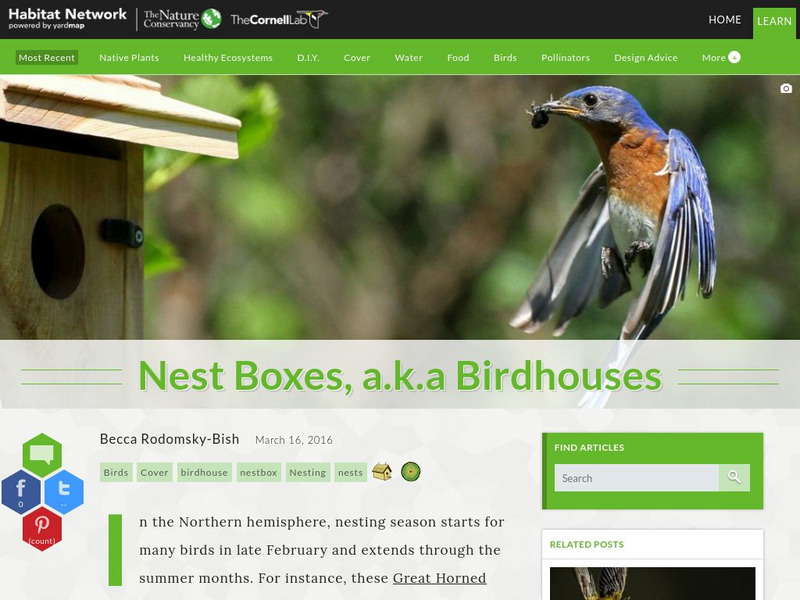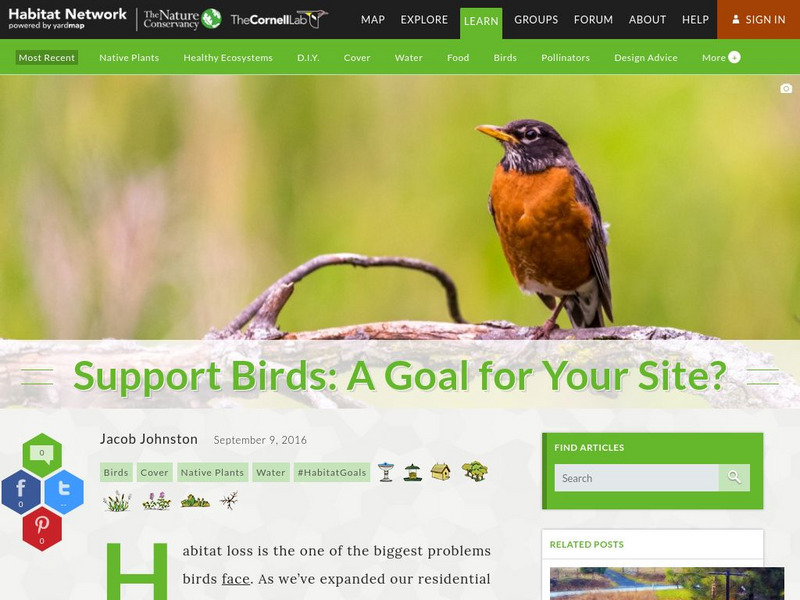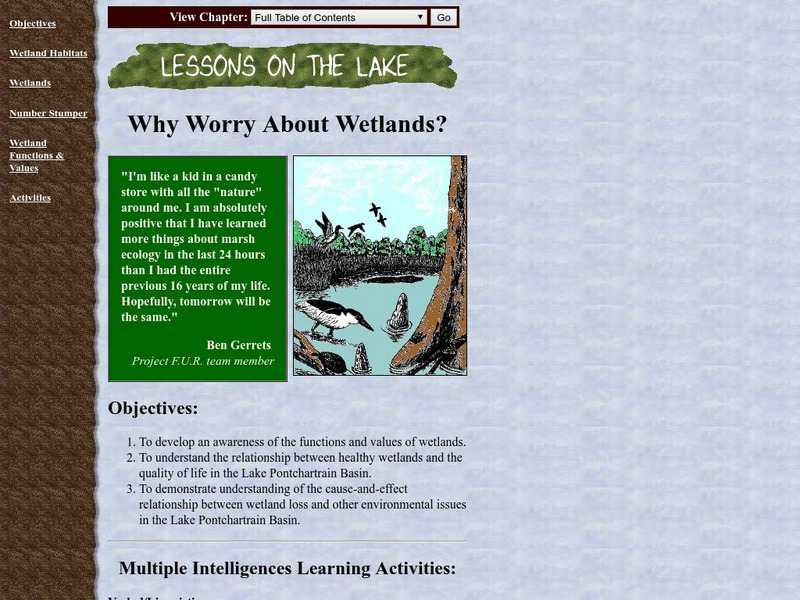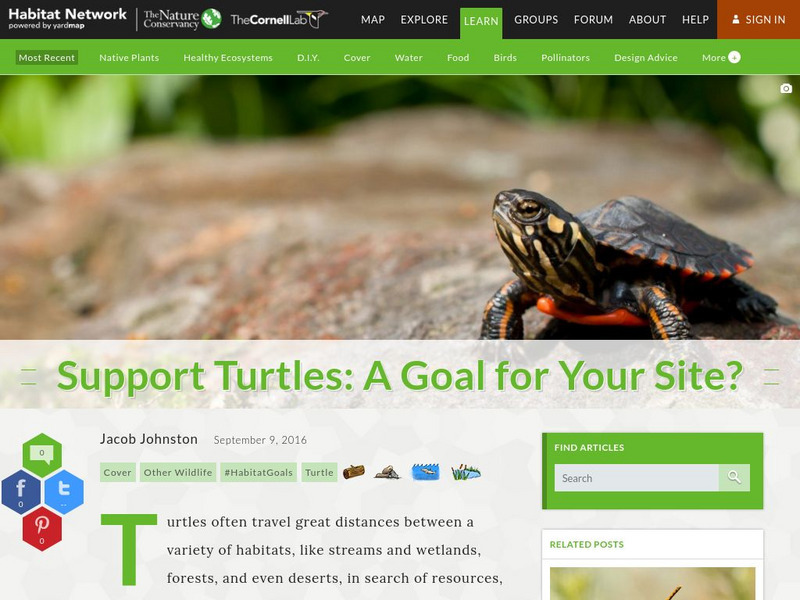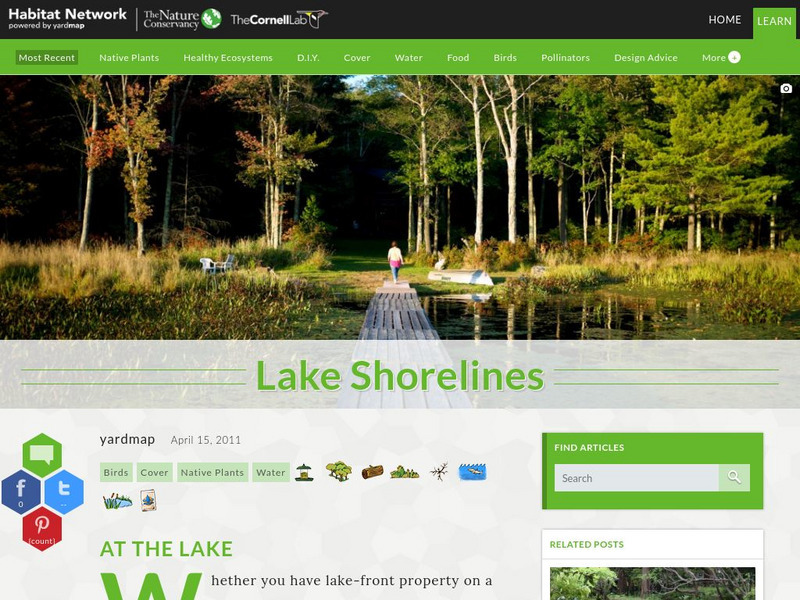California Academy of Sciences
California Academy of Sciences: Mountains
Look at pictures of some well known mountain ranges and read about the habitats, climate, plants and animals that are found on them. There is a link for additional information about the cold aeolian zone.
Other
Cartage: Mangrove Habitats
This thorough resource lists the features that all mangrove trees have in common, the types of organisms we may find in a mangrove community, and the three most common mangrove trees.
Other
Cartage: Salt Marsh Habitats
This resource provides a thorough examination of salt marshes and the grasses, plant species, and animal species that inhabit these areas.
University of Utah
University of Utah: Genetic Science Learning Center: Meet the Microenvironments
Investigate the Great Salt Lake's islands, rivers, and man-made structures that define several diverse microenvironments.
The National Gallery (UK)
National Gallery, London: Ite: Learning Ideas and Outcomes: Subject Focus
This extensive lesson plan uses the painting 'A View of Het Steen in the Early Morning' as a starting point to learning in science. Students will use the work by Reubens to learn about a variety of animals and their habitats.
Cornell Lab of Ornithology
Habitat Network: Nest Boxes, a.k.a Birdhouses
Learn about the importance of bird house boxes in backyard habitats.
Cornell Lab of Ornithology
Habitat Network: Support Birds: A Goal for Your Site?
Find out what citizen scientists can do to provide appropriate habitats for native birds.
US Geological Survey
Lake Pontchartrain Basin Foundation: Why Worry About Wetland?
Help learners understand the functions and values of wetlands through these multiple intelligences learning activities. The site also includes information about the wetland habitats, commercial values, water quality, and erosion control.
Science Struck
Science Struck: The 6 Chief Levels of Organization in Ecology
Describes six levels of organization in the biological world - individual species, population, community, ecosystem, biome, and biosphere.
Other
Cartage: Nonvascular Plants
Evolutionary history, reproduction, habitats, energy acquisition, division and more.
Huntington Library
Huntington Library: Garden Lesson Plans: Reading Plants: Vocabulary [Pdf]
A one-page glossary of words that might be used by elementary students when learning about plants and their habitats.
Annenberg Foundation
Annenberg Learner: The Habitable Planet: Ecology Lab
Create the parameters of your own ecosystem by choosing which producers and consumers live there. Visualize how the food web operates and species populations change. This simulator mimics the food web within a typical ecosystem and gives...
University of California
University of California Berkeley: Ecosystem Equilibrium
A simulator reviewing over the concepts of ecosystem equilibrium.
PBS
Pbs Learning Media: Biome in a Baggie
This ZOOMSci video segment shows how to create self-contained environments and explore how plants grow under different conditions. [3:24]
US Geological Survey
Lake Pontchartrain Basin Foundation: Ecosystems in Delicate Balance
Learning activities to investigate how organisms interact in a functioning ecosystem. Students will explore the role organisms play in food chains and preserving biodiversity in ecosystems. Lake Pontchartrain Basin ecosystem is featured...
Cornell Lab of Ornithology
Habitat Network: Habitat Feature: Bat Houses
Find out how providing bat houses can be beneficial to a habaitat.
Cornell Lab of Ornithology
Habitat Network: Habitat Feature: Making Mud
Find out how mud puddles in a backyard ecosystem make for a welcome habitat for many species.
Cornell Lab of Ornithology
Habitat Network: Cats in the Wildlife Garden: Can They Have Cake and Catio Too?
Habitat Network offers one solution to having an indoor or outdoor cat- a cat patio, or catio.
Cornell Lab of Ornithology
Habitat Network: Installing Cover Boards for Reptiles
Learn how to provide a cover board for reptiles who generally prefer drier conditions.
Cornell Lab of Ornithology
Habitat Network: Support Turtles: A Goal for Your Site?
Find out how a common backyard habitat can become a welcome habitat site for turtles.
Cornell Lab of Ornithology
Habitat Network: Lake Shorelines
Become a citizen scientist, and find out how to turn a shoreline landscape into a bird haven.
Cornell Lab of Ornithology
Habitat Network: Don't Be an Ecological Trap
With the help of some economics metaphors, Habitat Network delves into the scary-sounding "ecological trap" and helps bring it to light.
Other popular searches
- Elementary Science Habitats
- Life Science Habitats
- Ks2 Science Habitats
- Desert Habitats Science
- Esl Lessons Science Habitats
- Science Habitats Lesson


